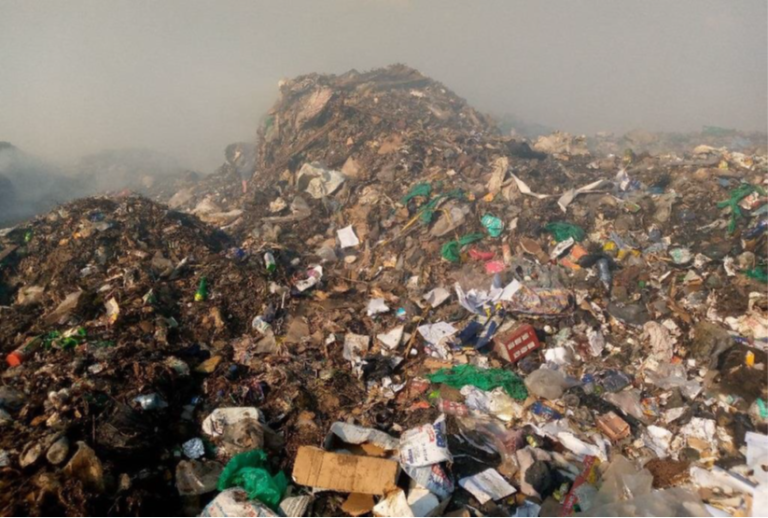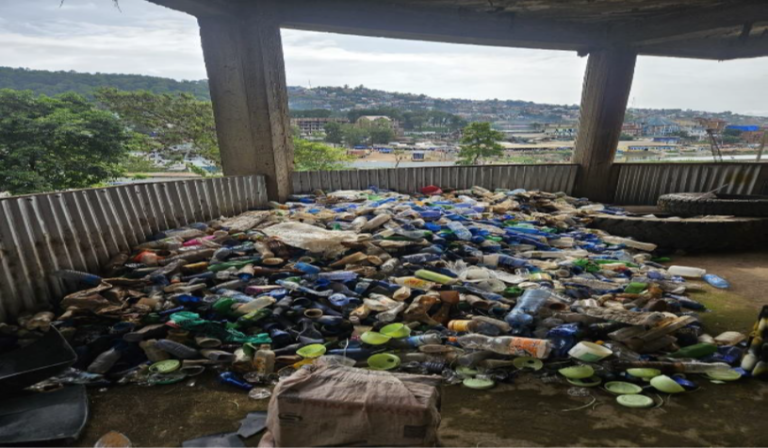Bio4HUMAN Achieved its First Milestone
Bio4HUMAN Achieved its First Milestone: Assessment of the Humanitarian Sector needs in the context of Solid Waste Management
Bio4HUMAN achieved its first milestone this summer by successfully mapping the humanitarian sector’s solid waste management (SWM) needs. The results of this achievement are presented in the Humanitarian Sector Needs Assessment Report, one of the project deliverables compiled by People in Need (PIN) and Polish Humanitarian Action (PAH). The on-site assessment was conducted in two project locations – South Sudan and the Democratic Republic of Congo.
This report marks the first step towards successfully identifying bio-based solutions for SWM that can be applied across various humanitarian settings.
The study analyzes common waste categories found in humanitarian contexts, along with key stakeholders involved in solid waste management within these settings. It also explores existing waste management systems, including infrastructure, regulations, and sustainable approaches.

The report also highlights key obstacles and potential advantages in managing solid waste within humanitarian contexts. It provides specific examples and explores how bio-based solutions might be applied to tackle these issues. The study stresses the importance of considering the wider solid waste management landscape when developing innovative approaches for handling waste in humanitarian situations.
The report offers a great insight into the situation of solid waste management both in the humanitarian sector and, more generally, in the context of humanitarian crises. We managed to talk to a range of stakeholders – including humanitarian organisations, local communities, businesses, authorities, and academia – and analyse their feedback to get an overview of needs and gaps which, at least to some extent, could be addressed with bio-based solutions. – Ludwika Klejnowska, WP6 leader from Polish Humanitarian Action (PAH).
The prepared report is a good starting point for initiating a market search for “bio-based solutions” that have the potential to be used in humanitarian actions and at the same time reduce the amount of solid waste generated by aid operations. First and foremost, “bio-products” will be sought. The research team will also be interested in innovative “bio-based technologies” that could be used in solid waste management systems in locations – places of humanitarian interventions. Furthermore, the humanitarian supply chains will be analyzed, with the aim of tracking down the gaps, which could be positively influenced by the “green” products and solutions.
The report leaves no doubt, that the demand for the bio–based innovative solutions will only grow and speed up, also in terms of securing humanitarian needs. This looks like a good market opportunity for all the innovators and bio-based stakeholders. – Tadeusz Pęczek, ProCIVIS CEO.
The long-term value of this report is twofold: (a) its findings can benefit the humanitarian community, academia, the bio-economy sector, and other stakeholders interested in developing innovations in solid waste management (SWM) within humanitarian settings; and (b) the needs assessment itself can be easily replicated.

The report and its findings and recommendations are available to all interested stakeholders, and Bio4HUMAN welcomes collaboration on future projects. The spirit of collaboration between academia, humanitarian organizations, bio-economy actors, and policymakers is strongly encouraged, as it is essential for driving innovative solutions in solid waste management within humanitarian settings.
The development of a set of data collection tools, including Key Informant Interview (KIIs) and Focus Group Discussion (FGDs) guides, as well as the Bio4HUMAN Observation tool, all created by PIN can be replicated for SWM needs assessments in various humanitarian settings and can be easily adapted for use in the development sector.
The comprehensive KII and FGD guides, which are structured based on various SWM topics of interest, can be replicated or adapted depending on varying contexts, stakeholders and needs of interested researchers. Likewise, the Observation tool can be reduced or expanded.
The data collection tools, which we created with the support of our consortium partners in order to conduct a comprehensive solid waste management needs assessment, target different stakeholder and can be applied in various environments. The design of these tools allows users to decide which themes are suitable for their research purpose and thus use only the relevant segments and questions or, on the other hand, expand the tools by adding additional questions on topics of interest. As such, they are versatile and can be adapted based on need. – Anna Nejedla, Global MEAL advisor, People In Need (PIN).
Following this first milestone, the project enters its second phase during which the scoping for bio-based solutions will be conducted.
Bio4HUMAN is a pivotal Horizon Europe-funded initiative, aiming to provide humanitarian aid operators with scientific insights into the potential and sustainability of bio-based products for humanitarian use. The project will identify solutions for solid waste management by assessing bio-based products’ applicability and acceptance in the humanitarian context, particularly in the Democratic Republic of Congo (DRC) and South Sudan.
The Bio4HUMAN consortium brings together 10 partners, including humanitarian organizations, bio-based sector actors, and circular economy experts.
